“COVID-19 and its Aftershocks” – World Vision India conducts an International Webinar
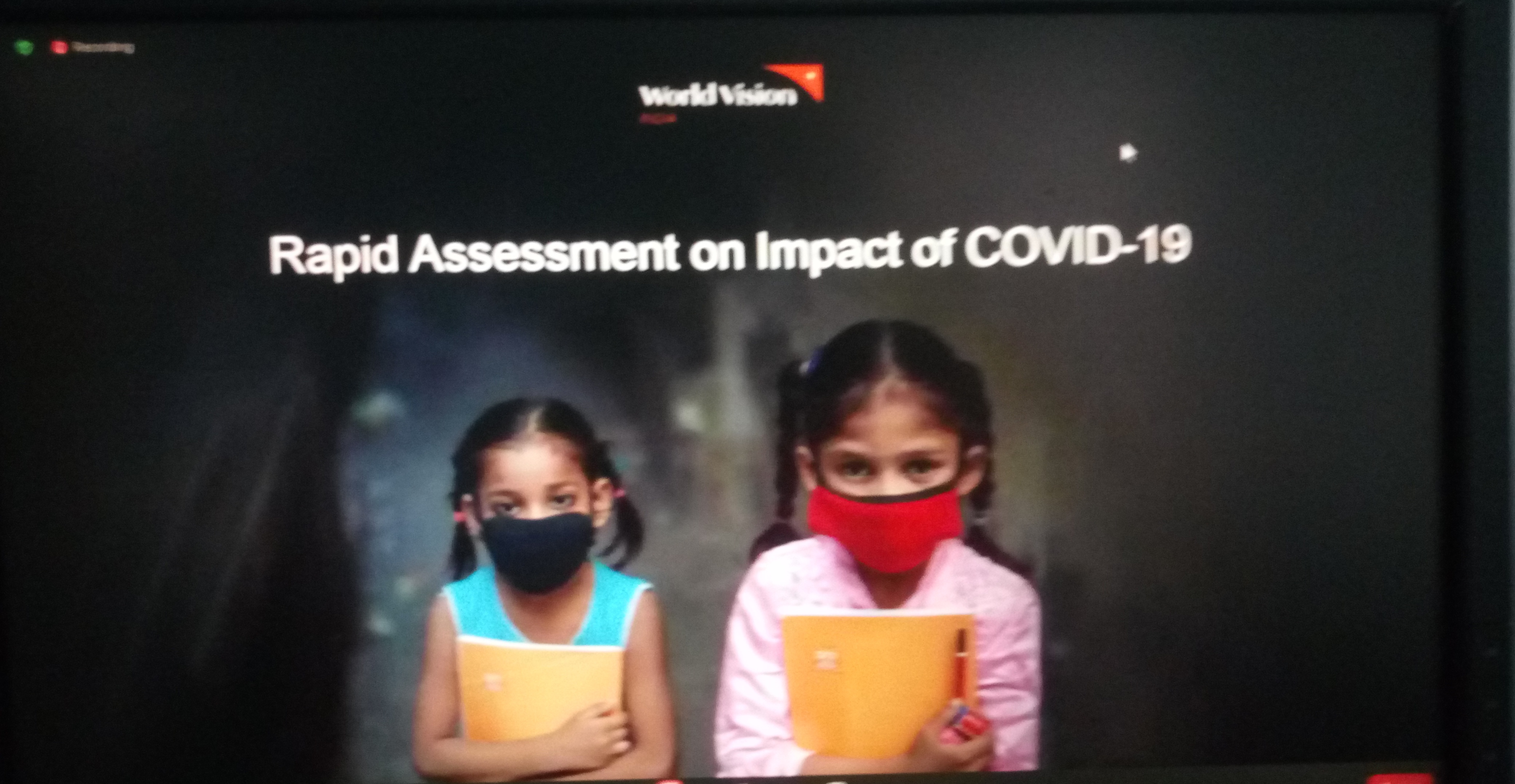
Isaac Gomes
https://www.facebook.com/ndtv/videos/704719360358427/
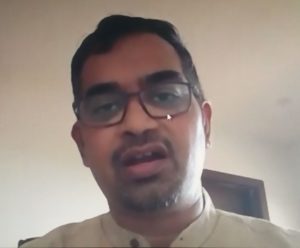 On 30th July 2020, World Vision India, a global humanitarian organisation, organised a Webinar captioned "COVID-19 and its Aftershocks." The programme was inaugurated by World Vision India CEO & National Director, Mr Madhav Bellamkonda (see photo left). Mr Ashok Kumar, Mr Amitabh Gautam, Dr K.C. George – officials from the Union Ministry, Mr Arjan De Wagt from UNICEF, Mrs Sarita Yadav from UNESCO, and Mrs Aditi Kaur, Chairperson-Uttarakhand State Commission for Protection of Child Rights, deliberated in the Webinar.
On 30th July 2020, World Vision India, a global humanitarian organisation, organised a Webinar captioned "COVID-19 and its Aftershocks." The programme was inaugurated by World Vision India CEO & National Director, Mr Madhav Bellamkonda (see photo left). Mr Ashok Kumar, Mr Amitabh Gautam, Dr K.C. George – officials from the Union Ministry, Mr Arjan De Wagt from UNICEF, Mrs Sarita Yadav from UNESCO, and Mrs Aditi Kaur, Chairperson-Uttarakhand State Commission for Protection of Child Rights, deliberated in the Webinar.
According to Mr Cherian Thomas immediate past CEO-cum-National Director of World Vision India, the survey a "Rapid Assessment Impact of COVID-19", was part of a larger study for the Asia-Pacific Region covering 14 countries. The Webinar presented a snapshot of the findings and recommendations that emerged from the survey during April 29-May 20 across 118 operational areas . It covered: (1) Household Survey – Livelihood and Food Security. (2) Water, Sanitation & Hygiene and Health Services (3) Child Survey – Concerns, Protection and Participation (4) Urban Study Findings (5) World Vision India Response. The survey respondents comprised: 61.1% Rural, 31.5% Urban and 7.4% Tribal.
The PowerPoint snapshot revealed (1) 71% of respondents had a single source of income. (2) 61% had no work/no business as a result of the Lockdown, while 24% either lost their jobs or were put on reduced salary. (3) 58% of families did not have three meals a day (4) 48% of families with children below two years struggled to get sufficient food for the family. (5) 51% of respondents shifted to less expensive food, while 49% took reduced portions of food per day (6) 63% said they were unable to pay their rent/loans. (7) Access to healthcare had reduced from 86% to 56% at hospitals, 77% to 50% at community health centres and from 66% to 43% at maternity care centres.
On Child Protection & Participation front, the survey revealed: (1) 67% children in the age bracket 10-18 reported that their parents/caregivers have used physical punishment or psychological aggression (2) 21.1% of their siblings/friends have shown negative change in behaviour during the lockdown period (3) About 40% children feel isolated or stressed about Covid-19. (4) Thanks to World Vision's Awareness Campaigns, 85.3% children know about the services/network (Child Helpline, CPU or Police) that can help them if something bad e.g. physical or sexual abuse or neglect/exploitation by someone was happening to them.
In the Urban sector survey, 95.8% of BPL Households, 95.3% of New Poor Households and 92.4% of Non-poor Households reported that their principal source of income has been affected. 63% of the households surveyed acknowledged having received extra ration from the PDS. 40% of the households reported increased domestic violence since the lockdown. 38.6% children reported unusual behaviour; 44% children reported increased irritable behaviour and a high percentage of children having access to digital media reported unusual behaviour during the Lockdown.
World Vision’s immediate response was: Reaching out to 3.6 million direct and 1.7 million indirect beneficiaries; 7,27,707 people reached through promotion of preventive behaviours; providing 7,409 medical personnel with PPE kits; providing 2,12,621 cooked food packets to vulnerable people and reaching out to 1,20,091 families through Cash and Voucher support – Rs. 5,000/- per family through the bank transfer, where the families have been affected by the COVID-19; also Rs. 1,000/- per family who have been affected by the Lockdown. Commodity Vouchers were given to those families who did not have bank account.
Its Recovery Plan addressed: (1) Household Food Security (2) Facilitating farm sector through agricultural inputs, cash and voucher programme: (3) Helping in setting up small businesses, (re)skill development, linkages to job schemes (4) Linking affected families/communities with various Central and State Government DBT and other welfare schemes. (5) Monitoring and strengthening Health, Water-Sanitation-Hygiene, Education and Child Protection mechanisms.
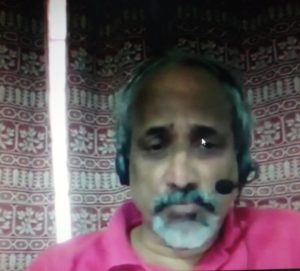 Mr Cherian Thomas said the study identified the critical needs of the 14 countries, very clearly livelihood and food security needs, which call for immediate intervention. He said during Response & Recovery plan to address the immediate needs, one must not lose sight of the broader picture (e.g. not to be lax on Malnutrition in children). He said any plan we develop must fit in with the larger strategic plan. He cautioned that all the agencies must be alert on child sexual abuse and trafficking. (Photo: Mr Cherian Thomas)
Mr Cherian Thomas said the study identified the critical needs of the 14 countries, very clearly livelihood and food security needs, which call for immediate intervention. He said during Response & Recovery plan to address the immediate needs, one must not lose sight of the broader picture (e.g. not to be lax on Malnutrition in children). He said any plan we develop must fit in with the larger strategic plan. He cautioned that all the agencies must be alert on child sexual abuse and trafficking. (Photo: Mr Cherian Thomas)
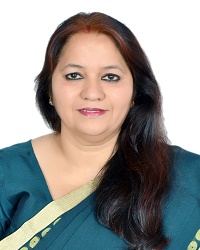 Mrs Jyotika Kalra, Chief Guest and Member-National Human Rights Commission while complimenting World Vision on the survey said it has to emphasize on infrastructure development for children’s education, as in a Covid-like pandemic, children were the worst sufferers. She said most rural areas have slow 2G internet services. World Vision has to identify education hubs with 4G internet connectivity at specific points at short distances so that rural children can carry on with their education in groups e.g. at Panchayat Offices. (Photo: Mrs Jyotika Kalra)
Mrs Jyotika Kalra, Chief Guest and Member-National Human Rights Commission while complimenting World Vision on the survey said it has to emphasize on infrastructure development for children’s education, as in a Covid-like pandemic, children were the worst sufferers. She said most rural areas have slow 2G internet services. World Vision has to identify education hubs with 4G internet connectivity at specific points at short distances so that rural children can carry on with their education in groups e.g. at Panchayat Offices. (Photo: Mrs Jyotika Kalra)
All the dignitaries appreciated World Vision's comprehensive coverage and said its findings would help governments in policy-making for recovery & response and in addressing input/supply chain disruption issues in times of Covid-like disasters.

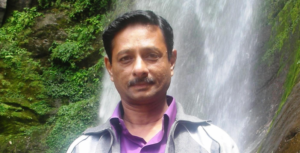
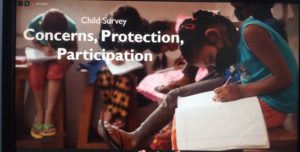
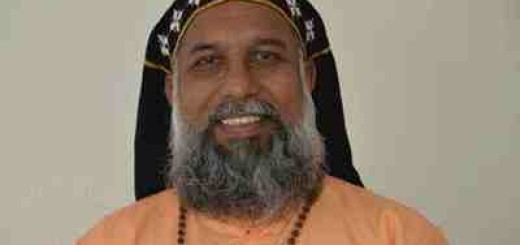

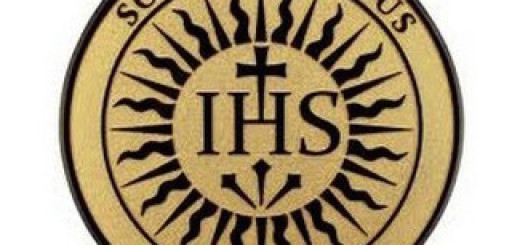













Well captured in the report. Let us continue to pray to almighty God that vaccine to be invented soon to heal the world